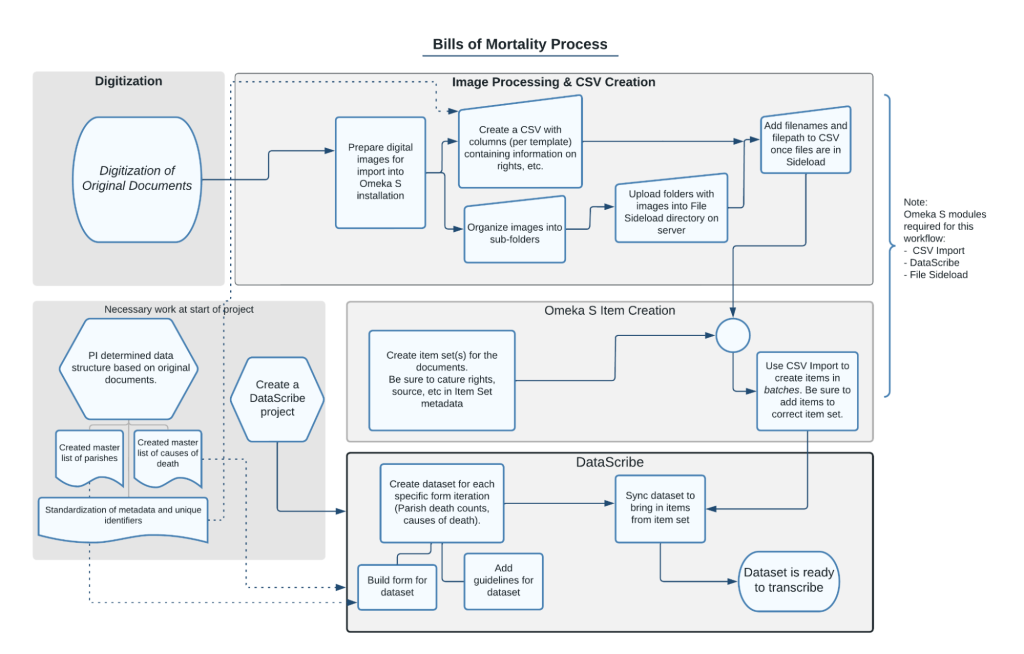Ambiguous Bills and Anonymous Commentators: Reflections on My Experience Transcribing the Bills of Mortality
I have had the pleasure over the last several months of transcribing Bills of Mortality for the Death by Numbers team, and what initially most surprised me is the amount of interpretation my role requires. Just because the bills are what historians would describe as “primary sources,” transcribing them is more complicated than just copying them word-for-word.
While it helps that the original bills are in English, I still routinely run into textual issues that require me to pause and think carefully and critically about how to approach the text. In this blog post, I want to give readers a peek into my world, so they can see the transcription issues I face on a regular basis. Before I end, I will offer a brief list of strategies I have learned that have helped me tackle transcription issues. I will also challenge you, dear reader, with three recent examples from my work to test your mettle as a transcriber. I encourage you to reply to this post with your ideas about how you would deal with them.

